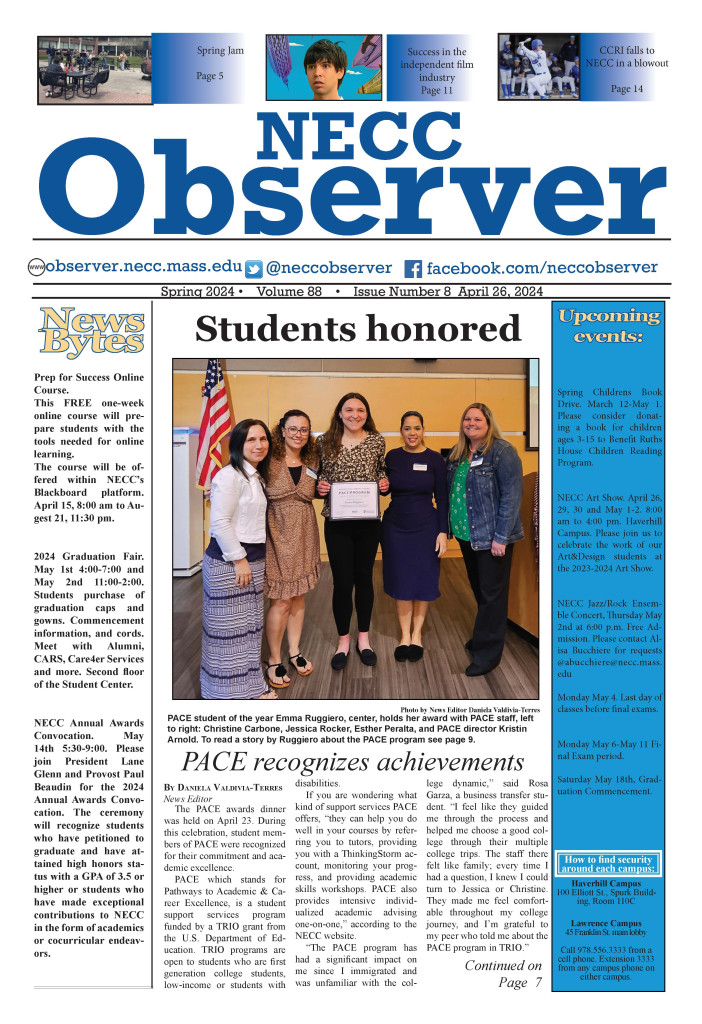In a time where students and professionals are adjusting to a new environment by working remotely from home, there are many sources of entertainment in the environment meant for distraction, among them the cell phone within reach offering access to social media platforms like Facebook and Instagram encouraging interaction between individuals.
Many students at Northern Essex Northern Essex Community College have different feelings about the ways in which these interactive platforms have impacted their daily routines.
NECC student, Leo Wellock, feels that social media has not affected his ability to stay focused on coursework during the day.
In terms of the amount of time Wellock spends using social media, he explains that on average, he spends about two hours per day using it. However, due to the current circumstances, he has been on it more often using platforms like Instagram and Letter Box, a tool he uses to make lists and map out coursework.
Despite the increase in phone usage, Wellock says his focus rarely drifts away from the task at hand allowing it to be completed at a reasonable time.
Additionally, Wellock says that social media has impacted him emotionally at times, especially when looking at social media postings or checking up on friends.
Also, if Wellock receives a notification on his phone, he experiences an instant urge to check it, especially if someone sends him a message about one of his movie reviews in which case he likes responding to the comment.
He sets aside some advice for those struggling with their time on social media: “Try setting up a schedule and breaking up certain segments of the day and see if that helps.”
NECC student, Brendan Fournier, age 22, feels that social media has not impacted his way of learning during the pandemic. Fournier says that although he uses social media quite often, he can complete assignments on time while limiting distractions.
Fournier does, however, struggle with procrastination. He says that procrastination comes easy to him because virtual learning allows for more time and flexibility.
Furthermore, Fournier is emotionally impacted when using social media at times, too. Besides his classes at the college, Fournier recently aged out of a post graduate program where he would connect with fellow students virtually through different interactive platforms and since his departure last year, Fournier says he is not connecting with students and friends as much as he once did, something that saddens him.
However, he still enjoys using social media platforms like Facebook to keep in touch with his friends from the program and those outside of the program as well. “I use it too often to count,” he says when talking about how his screen time has increased since the start of pandemic.
Fournier offers some advice for those who may be struggling with putting the phone down, “Set goals for yourself,” he says.

